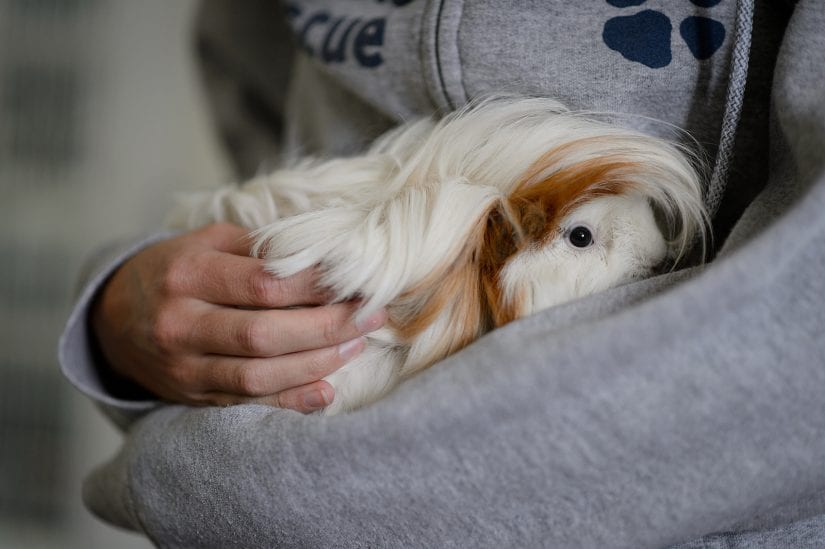People confident in their cat and dog handling abilities might find themselves feeling a little less self-assured around animals like rabbits, guinea pigs, gerbils, hamsters, rats or mice.
“When you’re interacting with small animals, it’s important to consider their needs and feelings, just like you would with a dog or a cat,” says Meghann Cant, BC SPCA manager of companion animal welfare science & policy. Small animals are prey species. They’re hard-wired to be on the alert for potential danger and, as a result, can frighten easily.
“When they’re hiding in one of their houses or hammocks, it’s best not to just reach in and grab them,” says Cant. “That can startle them and undermine their sense of security.” Ideally, when you approach their enclosure or call to them, small animals will come out on their own to greet you.
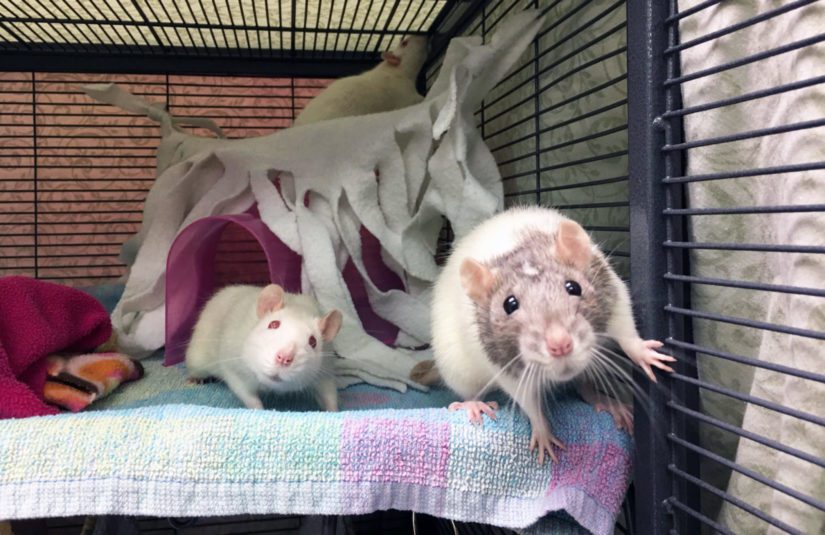
Make handling rewarding
The best way to encourage a friendly greeting? Food, says Cant. A favourite treat can go a long way to building trust by teaching nervous small animals that good things happen in your presence.
Another common issue that Cant encounters has to do with the perception that small animals are cuddly. While some become accustomed to being held and even enjoy it, for others, being lifted off the ground is more than a little unnerving. “Swooping in to pick them up could be reminiscent of an attack from a predator,” she says. As with greetings, getting small animals used to being held is best accomplished by going slowly and using food rewards.
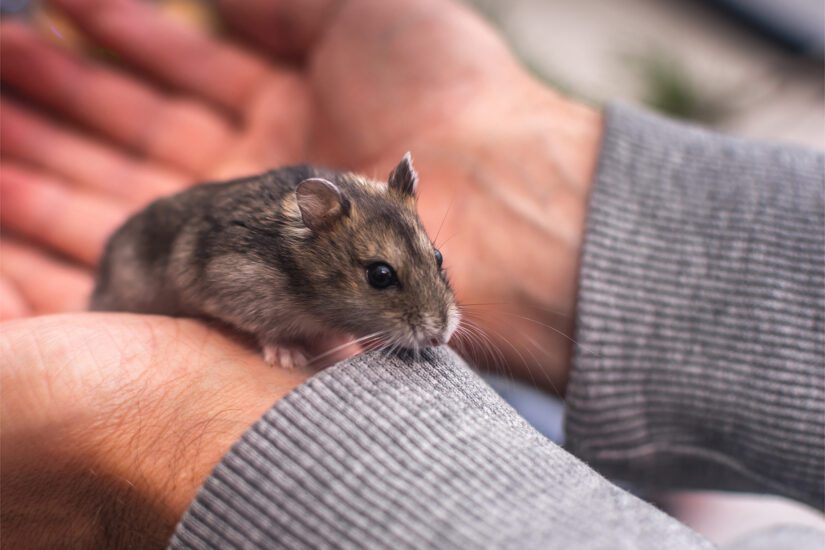
Small animal handling tips
Here are some other important tips for handling small animals in a low-stress manner:
- Always use two hands when you pick up a small animal. Support them properly so they don’t feel like they’re going to fall. For rabbits, guinea pigs and rats, this means placing one hand around their chest and one hand under their hind end. Hold them close to your chest for extra security. Hamsters, gerbils and mice can be gently cupped with both hands.
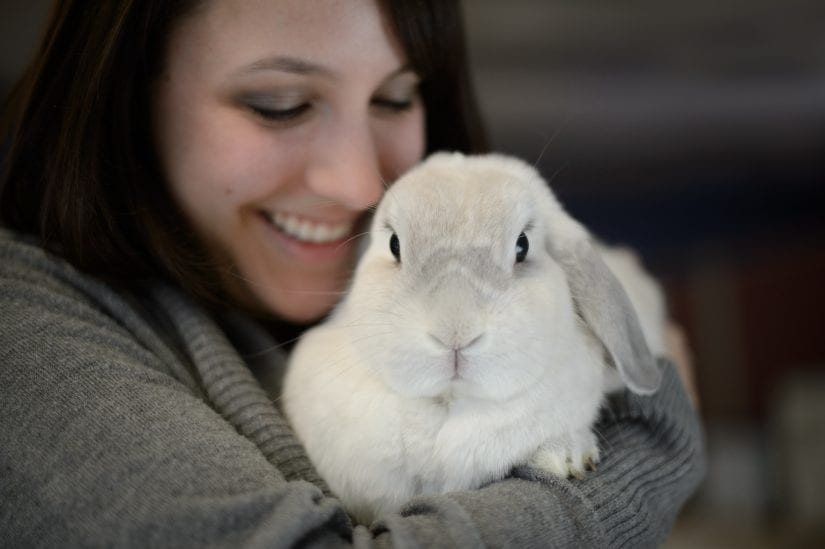
- When small animals struggle, often our instinct is to hold them tighter. However, squeezing hurts and can make them struggle even harder. Instead, understand why they’re struggling in the first place — they’re likely feeling uncomfortable or afraid.
- Never hold gerbils, rats or mice by their tails or rabbits by their ears. Avoid scruffing small animals, too. This type of restraint is stressful and even painful.
- Holding small animals upside down like a baby is frightening for them because of how vulnerable they feel on their backs. Research in rabbits, for instance, has shown that this position increases stress levels even though they appear relaxed.
- Sitting on the floor with your rabbit or guinea pig is a good way to encourage them to approach you. With time, they might feel comfortable enough to hop onto your lap.
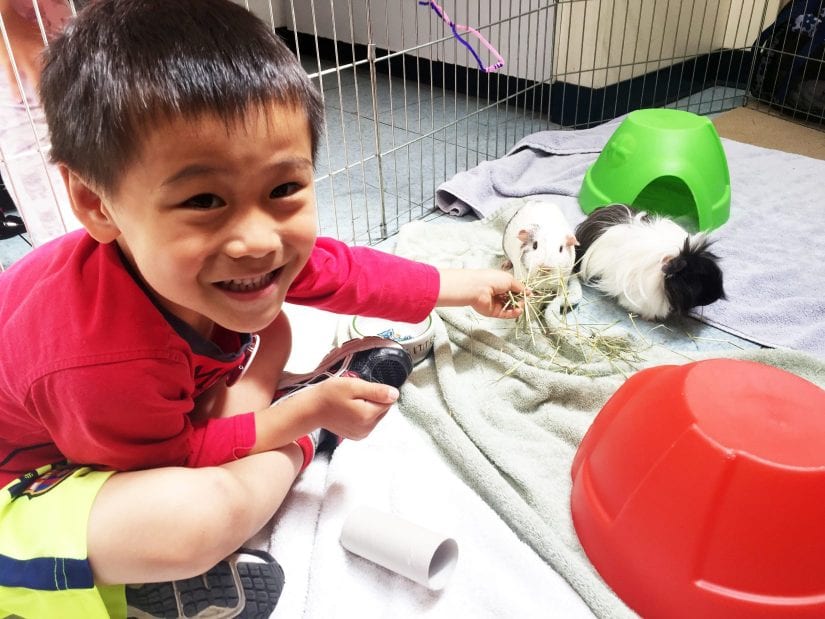
- Avoid carrying small animals over long distances, which could increase the likelihood that they’ll wriggle themselves free from your hands or arms. Use a carrier instead.
- Be careful when you’re returning a small animal to their enclosure. Sometimes injuries happen when they accidentally fall or try to jump back into the cage.
- Always wash your hands after petting or handling an animal.
“Small animals can make wonderful companions,” says Cant. “The key is to respect their unique natures.” By taking the time to build a relationship based on trust, you’ll see just how rewarding being a small animal guardian can be.
For more information on caring for small pets, check out our care guides:
Find a small animal available for adoption at a BC SPCA shelter near you.
